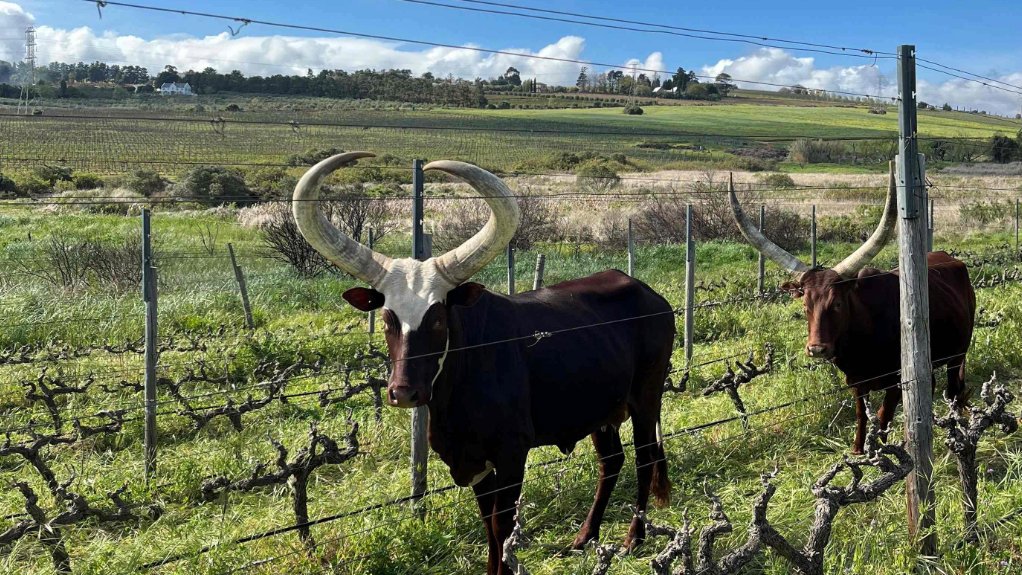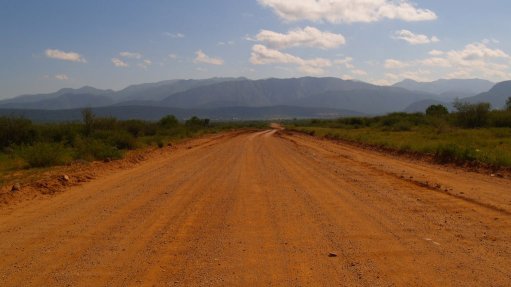Hartenberg Estate achieves country’s first regenerative viticulture verification


Hartenberg manages its environmental impact through regenerative practices, scientific verification and measurable outcomes
Hartenberg Wine Estate, owned by the Mackenzie family since 1987, has become the first wine farm in South Africa, and the second globally, to achieve regenerative verification under the Ecological Outcome Verification (EOV) framework.
Hartenberg manages its environmental impact through regenerative practices, scientific verification and measurable outcomes.
Core regenerative viticulture principles at Hartenberg include cover crops, holistically controlled livestock grazing, minimum-till methods, organic composting, eliminating chemical pesticides and fertilisers, and enhancing biodiversity for a balanced ecosystem.
These regenerative viticulture practices are said to restore soil health for healthier vine growth and long-term sustainability, and to also offer further ecological and economic advantages.
For example, carbon sequestration assists in mitigating climate change, improving soil carbon levels and health and building ecosystem resilience.
Improved water retention reduces erosion, water runoff and irrigation needs.
Organic waste composting is indicated to improve soil structure and boost yields.
Cost savings, less water pollution, enhanced biodiversity and positive market differentiation are said to be achieved through reduced reliance on agrochemicals.
Since 2010, Hartenberg has incorporated multi-species cover crops to improve soil structure, enhance biodiversity and provide fodder, considerably reducing herbicide use, minimising chemical fertilisers and improving soil health and water retention.
Holistic controlled grazing, introduced in 2017, involves carefully managed cattle grazing to add nutrients, stimulate plant growth and aerate the soil.
Initial soil analysis indicates that the introduction of holistic controlled grazing animals is having a positive impact on both plant and soil health.
Also, for over 20 years, Hartenberg has employed natural predators like ladybirds, wasps and owls to maintain virus-, pest- and rodent-free vineyards, while promoting local biodiversity and a balanced ecosystem.
Hartenberg’s composting initiatives convert food and plant waste into nutrient-rich mulch to reduce waste and improve soil health.
A decade-long project of clearing invasive species has also revitalised Hartenberg’s 65 ha wetland area, leading to the return of indigenous flora and fauna, enhanced water retention and improved ecosystem health.
EOV evaluates the real-world ecological outcomes of regenerative farming. Using data, metrics and analysis, it evaluates measurable outcomes covering soil carbon levels and health, water infiltration, ground cover and biodiversity.
Operated by the Savory Institute, and supported locally by TruQuest, an accredited Savory Hub, EOV is the primary prerequisite in the Land to Market programme, which connects consumers with products sourced from land verified as regenerating ecologically, aimed at ensuring transparency and traceability in the supply chain.
Hartenberg underwent a comprehensive EOV verification, which involves regional calibration adapting the monitoring framework to the local environment; yearly assessments that generate an Ecological Health Index; and long-term evaluations conducted every five years.
The EOV verification process is conducted independently by accredited verifiers and monitors with regional expertise.
It follows a global quality assurance programme supported by procedures and protocols. Once monitoring is complete, the data is reviewed by the regional Savory Hub Verifier and then by the Global Quality Assurance team.
Article Enquiry
Email Article
Save Article
Feedback
To advertise email advertising@creamermedia.co.za or click here
Press Office
Announcements
What's On
Subscribe to improve your user experience...
Option 1 (equivalent of R125 a month):
Receive a weekly copy of Creamer Media's Engineering News & Mining Weekly magazine
(print copy for those in South Africa and e-magazine for those outside of South Africa)
Receive daily email newsletters
Access to full search results
Access archive of magazine back copies
Access to Projects in Progress
Access to ONE Research Report of your choice in PDF format
Option 2 (equivalent of R375 a month):
All benefits from Option 1
PLUS
Access to Creamer Media's Research Channel Africa for ALL Research Reports, in PDF format, on various industrial and mining sectors
including Electricity; Water; Energy Transition; Hydrogen; Roads, Rail and Ports; Coal; Gold; Platinum; Battery Metals; etc.
Already a subscriber?
Forgotten your password?
Receive weekly copy of Creamer Media's Engineering News & Mining Weekly magazine (print copy for those in South Africa and e-magazine for those outside of South Africa)
➕
Recieve daily email newsletters
➕
Access to full search results
➕
Access archive of magazine back copies
➕
Access to Projects in Progress
➕
Access to ONE Research Report of your choice in PDF format
RESEARCH CHANNEL AFRICA
R4500 (equivalent of R375 a month)
SUBSCRIBEAll benefits from Option 1
➕
Access to Creamer Media's Research Channel Africa for ALL Research Reports on various industrial and mining sectors, in PDF format, including on:
Electricity
➕
Water
➕
Energy Transition
➕
Hydrogen
➕
Roads, Rail and Ports
➕
Coal
➕
Gold
➕
Platinum
➕
Battery Metals
➕
etc.
Receive all benefits from Option 1 or Option 2 delivered to numerous people at your company
➕
Multiple User names and Passwords for simultaneous log-ins
➕
Intranet integration access to all in your organisation



















